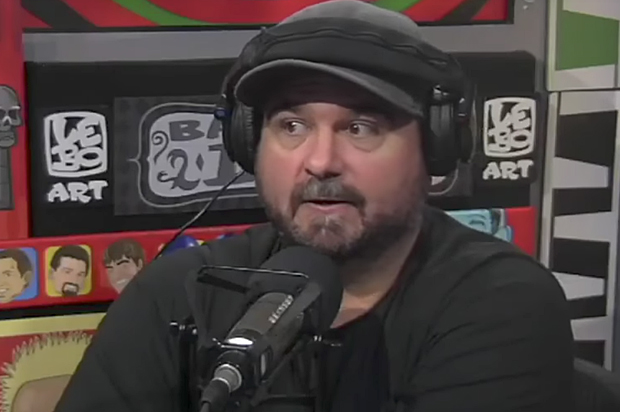Just like the world of U.S. politics, the American sports community is dealing with the national virus that is racism. ESPN radio host Dan Le Batard experienced it first hand on Wednesday after he broke the news of Michael Bennett’s arrest on his radio program.
Le Batard read Bennett’s statement on the incident, one in which he describes being racially profiled and treated with excessive force by Las Vegas police following the Mayweather-McGregor fight last month.
Instead of hearing compassion or empathy from his listeners, Le Batard’s ESPN studio was flooded with hate mail and angry texts. Le Batard read a brief sample of the outrage.
“You cannot possibly believe that Bennett B.S. story, Dan,” one text purportedly said. “What a bunch of [bleep]. Shut up you and shut up Bennett,” another said. “Shut up fat-face LeBatard,” a third one added. “I still haven’t found the racists who sprayed LeBron’s gait. This is all made up. Liberal sheep lier. Shut the [bleep] up.” “You are being so over dramatic and so is Michael Bennett,” a fourth message went.
The last insensitive response Le Batard read was perhaps worse of them all: “Why is it O.K. to be racist towards white people?”
An emotional Le Batard immediately clapped back at his listeners, offering one of the most candid discussions this year on the race problem in America.
“I am just hurt by it. ‘Prove to me racism exists.’ Well, how can I prove it to you if when Michael Bennett comes out and tells his story and you tell him, ‘Not true.’ How?” Le Batard asked his audience. “How can I prove it to you if every time, you are going to say, ‘Fake news.'”
“What’s disturbing isn’t just that honest to God [racism] exists, it’s that these are the people who are listening to us,” he added. “These are the people who want to be part of our community and texting us their thoughts.”
Le Batard said he would prefer indifference from his listeners than the fury he heard. “None of you would want this. If it were you on the end of those handcuffs, man, this is not what you would want to be met with,” he said. “If it was you who had been treated unfairly, who came home after work and told your wife, or your parents, how you were treated unfairly, you would not want their response to be, ‘Prove it.'”
“Who hurt you? Who hurt you? Because I know who hurt black people. It was white people,” he concluded. “Who hurt you?”


